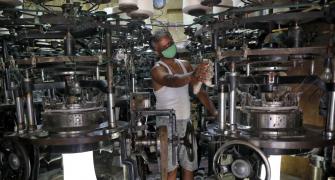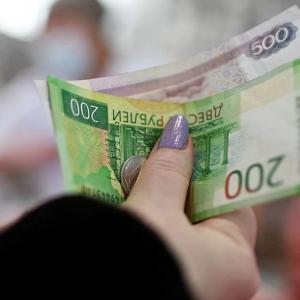Chinese suppliers typically raise prices of bulk drugs and other raw materials whenever they see an opportunity, and once the formulation makers turn to local suppliers in India, then suddenly crash the prices and flood the market with their products.
Sohini Das reports.

With intermittent disruptions in the supply chain of raw materials from China, the Indian pharma industry has braced itself with bigger inventory. Even smaller drug makers are now carrying a month of buffer stock of key raw materials, said industry insiders.
The lockdown in various Chinese provinces, including Shanghai, is likely to delay shipments by two weeks to a month, said domestic players.
Shipments are critical for the Indian drug industry, which imports 70 per cent of its raw material from China.
Some products, such as antibiotics and vitamins (fermentation bulk drugs), are imported to the extent of 90 per cent of the total requirement.
What’s ailing the local industry more is continuous price fluctuations of bulk drugs, key starting materials (KSMs), solvents, and excipients.
“China has been manipulating the prices of these key raw materials since the past two years, and this is leading to serious difficulties on the ground,” said Chirag Doshi, former chairman of the Indian Drugs Manufacturers Association (IDMA)-Gujarat state board, and owner of Yash Medicare.
Doshi said Chinese suppliers typically raise prices of bulk drugs and other raw materials whenever they see an opportunity, and once the formulation makers turn to local suppliers in India, then suddenly crash the prices and flood the market with their products.
“For example, during the pandemic, we have seen this with anti-fungal drugs, steroids, which were in high demand. Prices of steroids went up from Rs 50,000-60,000 per kg to around Rs 1.2 lakh per kg.
"Similarly, for anti-fungal bulk drugs, the prices moved up from Rs 1,500-1,800/kg to Rs 50,000/kg,” he adds.
Manufacturers started sourcing from Indian bulk drug makers which was then available at Rs 5,000/kg (for anti-fungal).
China then suddenly crashed their prices and flooded the market, and the prices came down to Rs 1800/kg again, Doshi said.
The local industry feels that ever since India is focusing on becoming self-reliant on bulk drugs, the Chinese manufacturers and suppliers have adopted such a price manipulative strategy.
The chief financial officer of a Gujarat-headquartered drug firm told Business Standard that the Chinese bulk drug industry has been doing so from time to time.
“We have seen this in the 90’s as well. Now they have again adopted a similar strategy.
"This virtually scuttles any efforts of self-reliance,” he said.
Indian industry has thus started to maintain buffer stock for a few months.
Dheer Shah, CFO at BDR Pharmaceutical, said the industry always carries three to four months of buffer stock, and even smaller players mostly have a month of stock of inventory.
Saying that input costs have risen dramatically in the past two years, Shah said Chinese suppliers are indicating that thanks to lockdown in Shanghai and other provinces the shipments will be delayed by two weeks to a month.
“There would be no shortage of drugs in the domestic market,” said a Delhi-based drug maker.
“We have managed to survive and supply during the pandemic. We would manage now as well,” he added.
It would take at least eight to ten years for the benefits of the production-linked incentive (PLI) scheme to show on the ground, he felt.
“The bigger problem is to find alternatives to China.
"Let’s say we try to source from Europe —one those products would be at least 35 per cent more expensive —and secondly, there would be capacity constraints.
"China has killed competition in the bulk drug space by manipulating prices,” said the executive.










